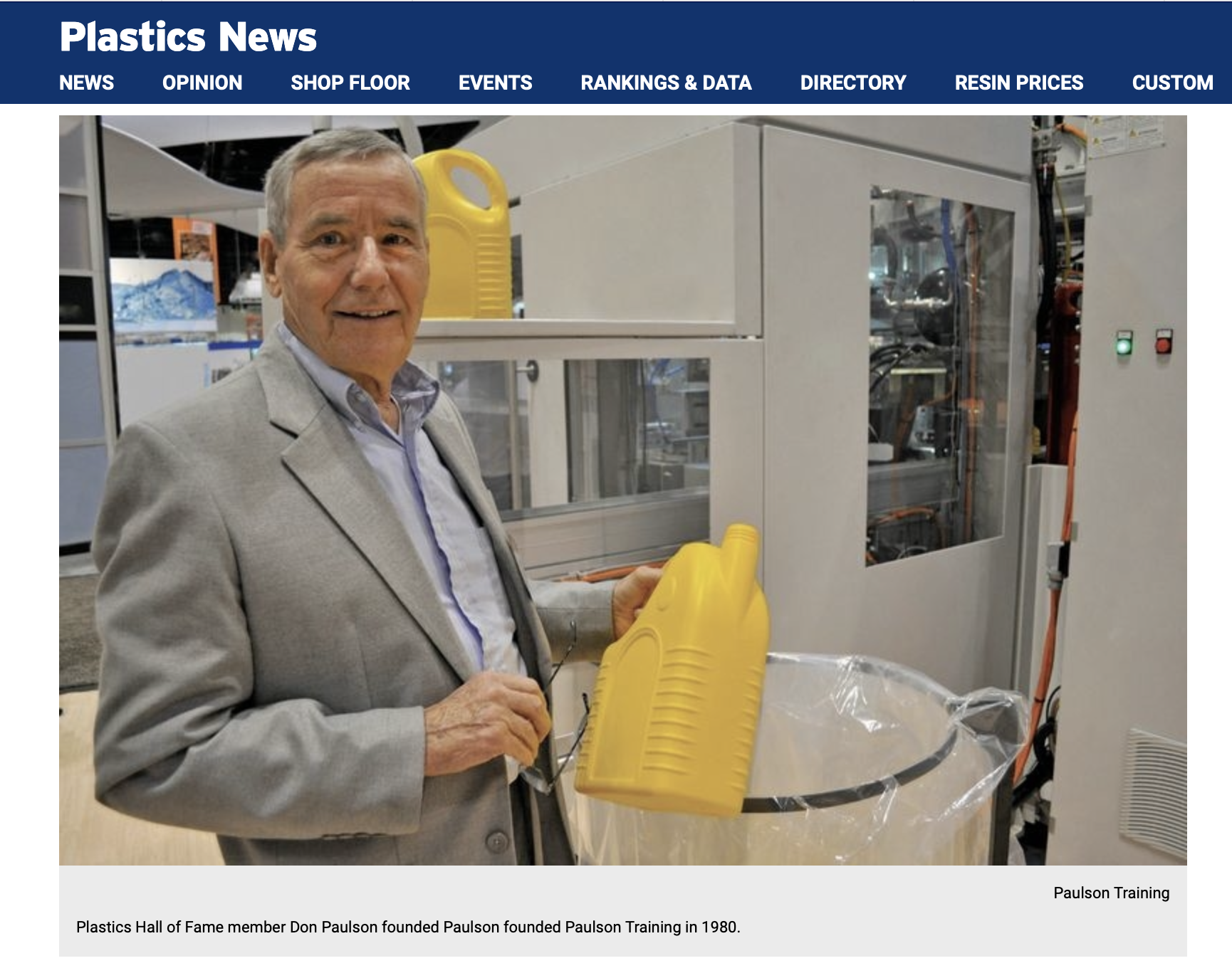 This is an inspiring story on a number of levels. Take a few minutes to read it. There are some important lessons to be learned.
This is an inspiring story on a number of levels. Take a few minutes to read it. There are some important lessons to be learned.
In March, 2012 Paulson Training received a call from a gentleman named Dan Jones who was looking to improve his plastics processing knowledge and skills to advance in the injection molding industry. Dan is no newcomer. He has 23 years of injection molding experience at various levels over his career. The injection molding industry in his part of the country, Lockport, NY, was going through significant slowdowns and Dan found himself out of work.
He had seen Paulson plastics training courses on and off during his career, although none of his employers had ever adopted any sort of formalized training. So Dan’s knowledge was a lot of hands-on experience, but no formal training. When he found himself out of work, an idea came to mind… “What if take the initiative and improve my knowledge and skills, get certifications that verify my abilities, and then go find another job. A better job.”
This is when we first heard from Dan. He called us asking if there was any way we could train and certify him as a Paulson Certified Molder. He knew that his experience combined with proof of his knowledge and skills would make him a very attractive job candidate. After hearing his story, we signed Dan up for an extensive curriculum in our InSite360 online learning platform at no charge. We do this from time to time. We do it because:
- We have an obligation to give back to the industry
- We greatly admire individuals who take the initiative and action to improve themselves
Dan was driven to improve his technical knowledge and did an outstanding job getting through the training. As he puts it, “The online format allowed me to pace myself. I could take the training on my schedule.”
Since our training relies on extensive testing and injection molding simulator time as a means of verifying knowledge and skills, the test scores a person achieves are a strong indicator of their knowledge and skills for that particular process (in this case injection molding). Dan’s scores were consistently in the 90 to 100 range on the final exams.
Of particular value according to Dan were the SkillBuilder molding simulation lessons we have integrated into our training courses. The injection molding machine simulator provides valuable hands-on experience running an injection molding machine including mold set-up, optimizing the molding cycle and solving various part defects. Using simulation, a student can literally run 10 times the number of cycles that they could run on an actual machine in a given time period. Specifically, control adjustments like barrel temperature changes happen the next cycle, not after 20 minutes of waiting. Because of this, at-the-machine hands-on training is fast, flexible and safe. Concepts taught during a lesson can be proven instantly on the simulator. There’s nothing to break, no plastic to waste, no energy costs and no expensive machine time used.
Fast forward to the present. Dan is currently deciding on accepting one of two job offers in South Carolina, one with a well-known medical molder.
Stories like Dan’s remind us that the industry has a skilled labor shortage and a well-trained individual with verifiable credentials of their knowledge and skills will usually be able to land a job. If you’re willing to relocate, as Dan is, you can find a job where manufacturing is strong. In these times professional certification such as Paulson Molder Certification are vitally important for your career.
Dan summarizes his last 6 months, “The folks Paulson couldn’t have been more helpful and I really appreciate what they’ve done for me. Their certification has allowed me to find a better job and great prospects for the future. Thank you Paulson Training!”
How do you transfer this model to your company? Well, most companies have people like Dan already – hungry for more knowledge and skills to better themselves through structured, proven plastics training. You should identify them. If your company makes the effort to invest in employees that want to learn, the payback to your plastics processing operation will be tremendous.



